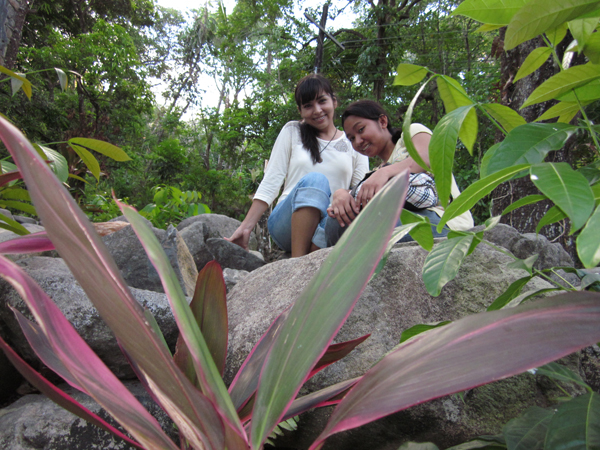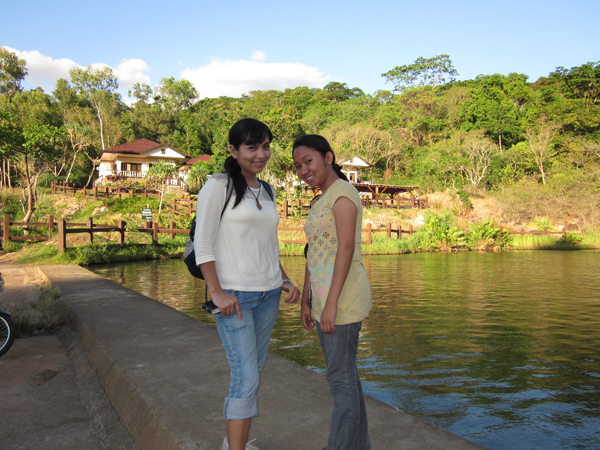Her Home In The Philippines
By Richelle Verdeprado
After many years of not attending Mass, 26-year-old Peruvian Marisol Rojas Tomasto’s concept of priests and going to church changed when she first met the Columbans ten years ago. Since then, she has admired their sense of closeness with the people and how they break down the walls that separate them from the community. Wanting to do the same, she has now found her second home in the Philippines as a Columban Lay Missionary. Marisol met the Columbans in 2000 in a very simple chapel made of mats in San Martin de Porres Parish, Lima, Peru.She was 16 years old then and preparing to be confirmed after passing through a series of Bible sharings and recollections. Marisol was baptized by Australian Columban Fr Leo Donnelly. She is the youngest child in the family. All of them are girls. She studied English for three years and spent another year focusingin grammar. Marisol worked in a non-government organization for children known as ‘Santa Bernardita.’ The center is located in a poor area in Peru. She was a teacher and a librarian. She helped the children in their assignments. She really loves working with children.
L to R: Marisol Rojas and Richelle Verdeprado.
Irish Columban Fr Tony Coney invited her to join the first Peruvian group of Columban Lay Missionaries to be sent on mission. Making such a decision was not easy but because the work of the Columbans was very close to her heart and there was already that passion within her to proclaim God’s word and love to the world as a response to God’s blessings through the presence of the Columbans in her country, she responded to the calling eventually. She said ‘yes’ to the invitation and started her discernment in 2005. She had her formation in 2007. Marisol’s first term is in the Philippines. Language is a major difficulty, but Marisol has proven that nothing is too hard for those who are really committed. She believes that she must really take time to know the language because communication is a very important tool needed in order to be understood and to help in proclaiming God’s word. Marisol recalled one of the experiences she had in the market during her first few weeks in the Philippines. The vendor had already talked a lot, perhaps about the vegetables and their prices, in Cebuano, one of the major languages in the country. Marisol felt sad because she couldn’t understand anything. How she wished she could learn the language fast! She was just amazed that after the woman discovered that Marisol was not a Filipino and did not understand her, the vendor just laughed about herself. The woman thought that Marisol was Filipino. Asked why she considered the Philippines as her second home, she said ‘I really feel very comfortable here because of the people. I want to understand them because they also make me feel that they understand me. They always make me feel as if I’m a member of their families.’ This made Marisol very interested in studying and learning some of the languages and dialects of Filipinos. One of the unforgettable times of her life was when she studied Cebuano in Davao. ‘I felt as if I’m a little girl again, learning how to say “hello” and “thank you”. My teachers and classmates were very kind,’ added Marisol Now, Marisol can understand and speak Cebuano.
arisol and Richelle.
You may contact Richelle at rich_verde706@yahoo.com.ph